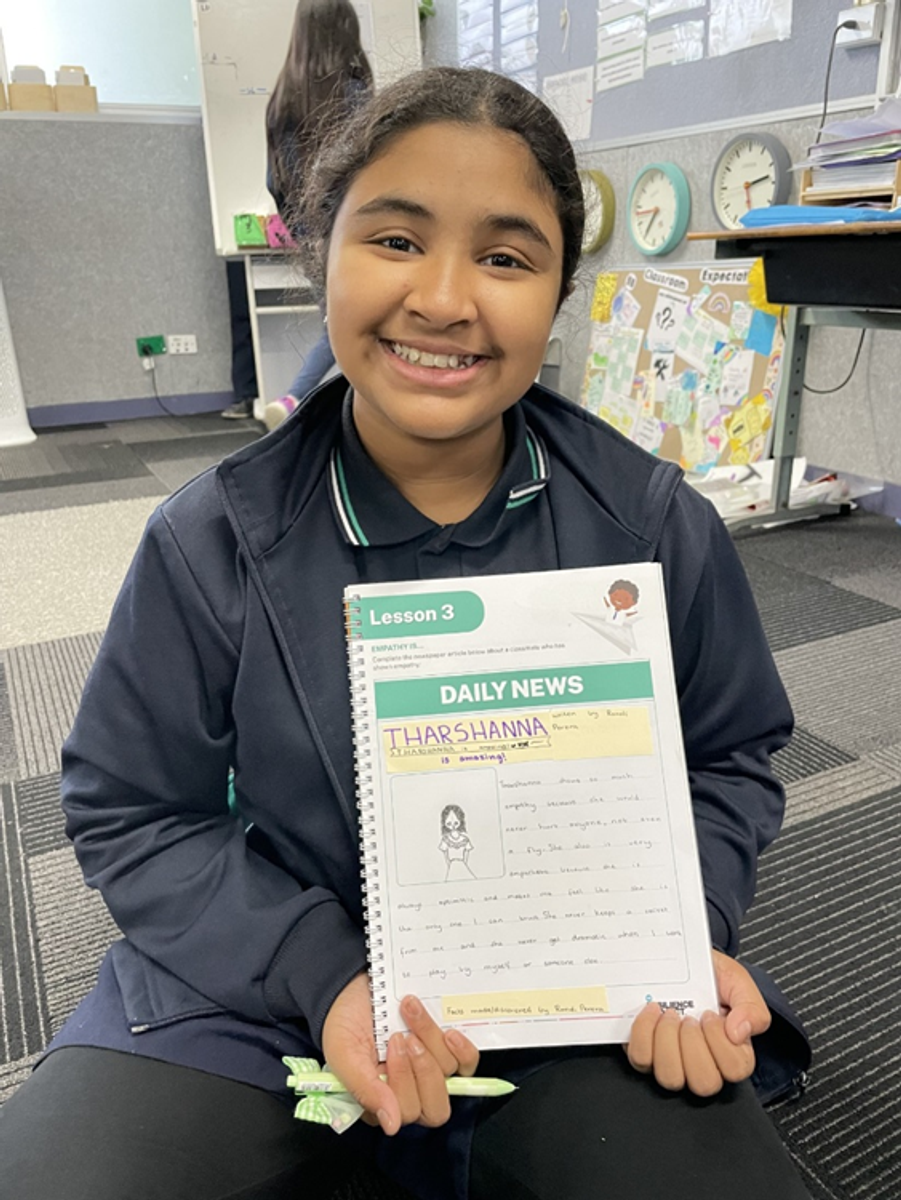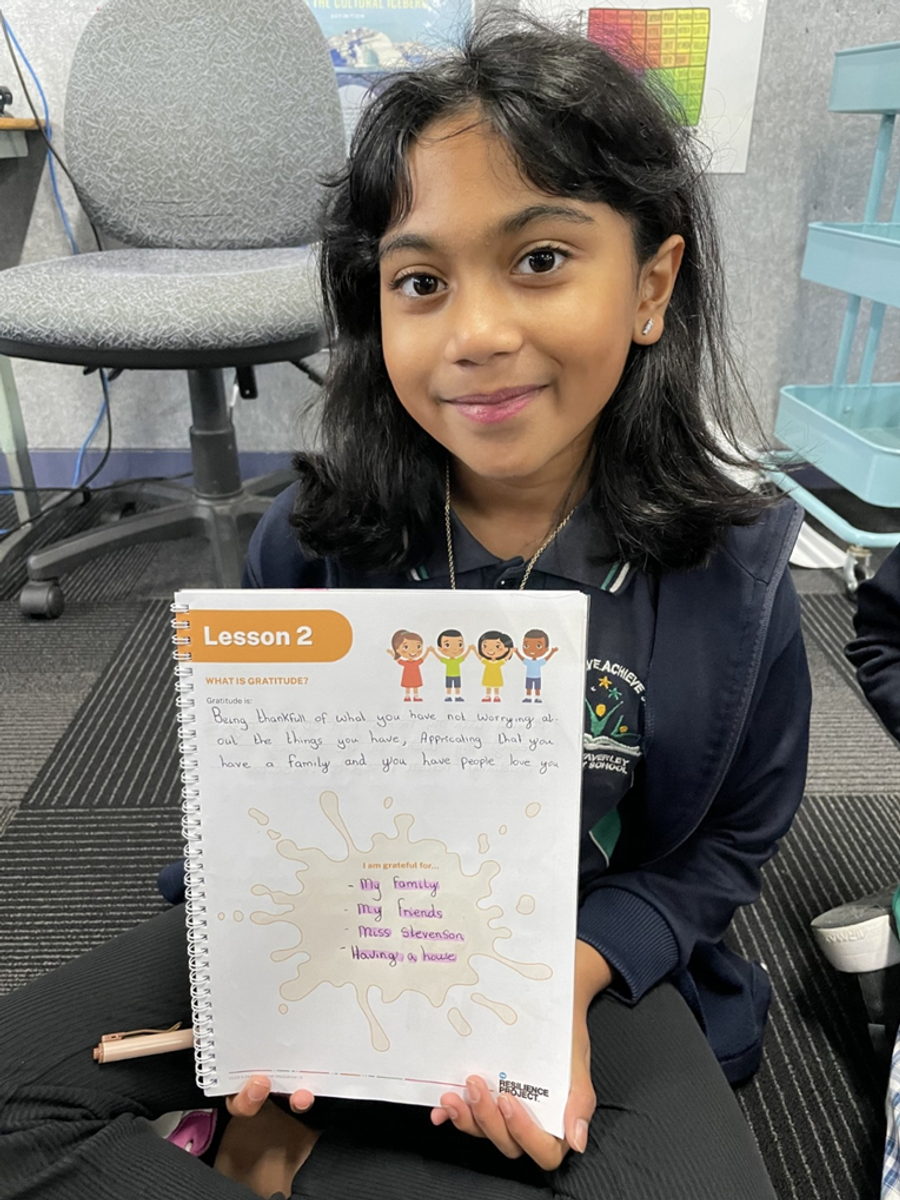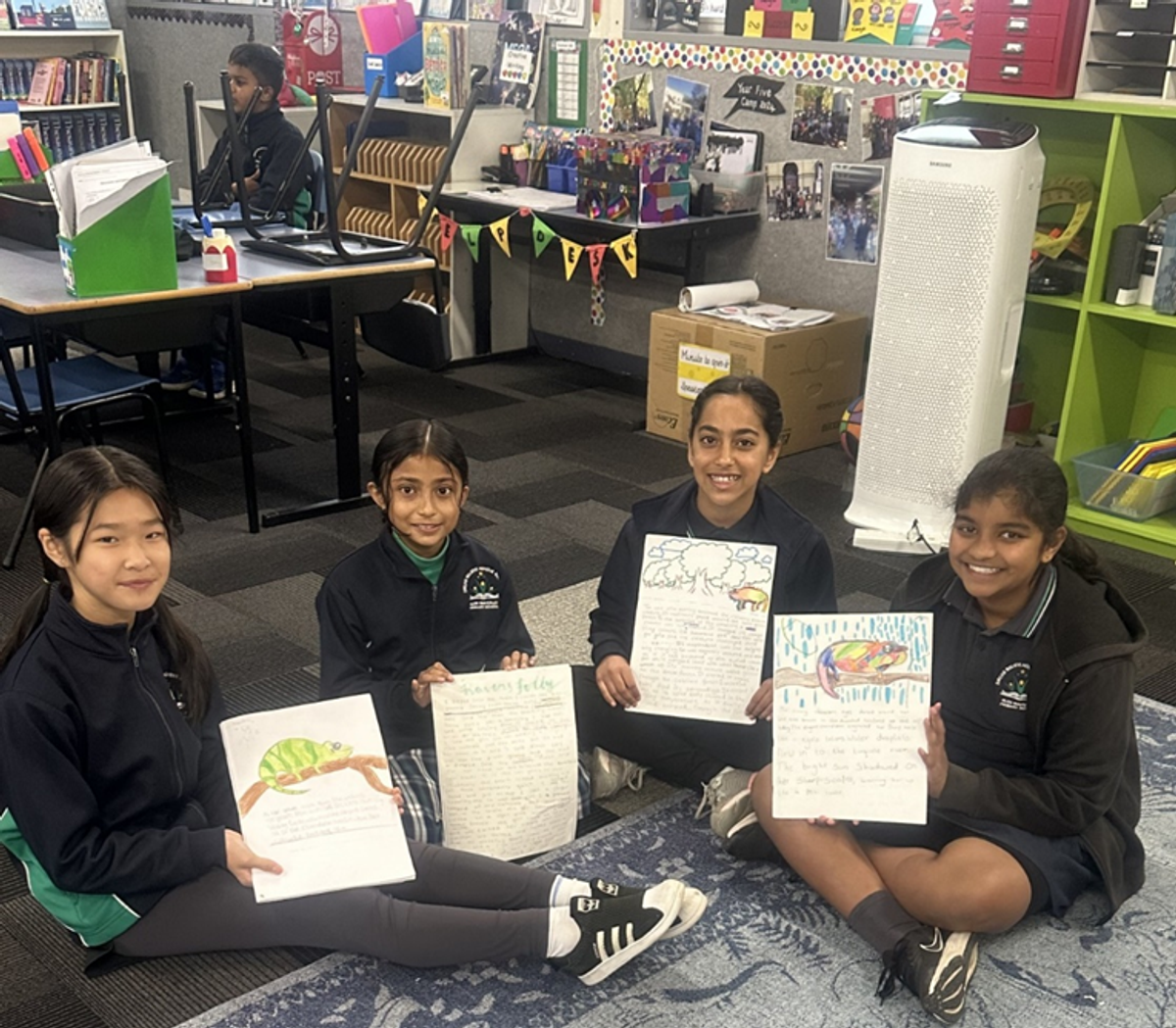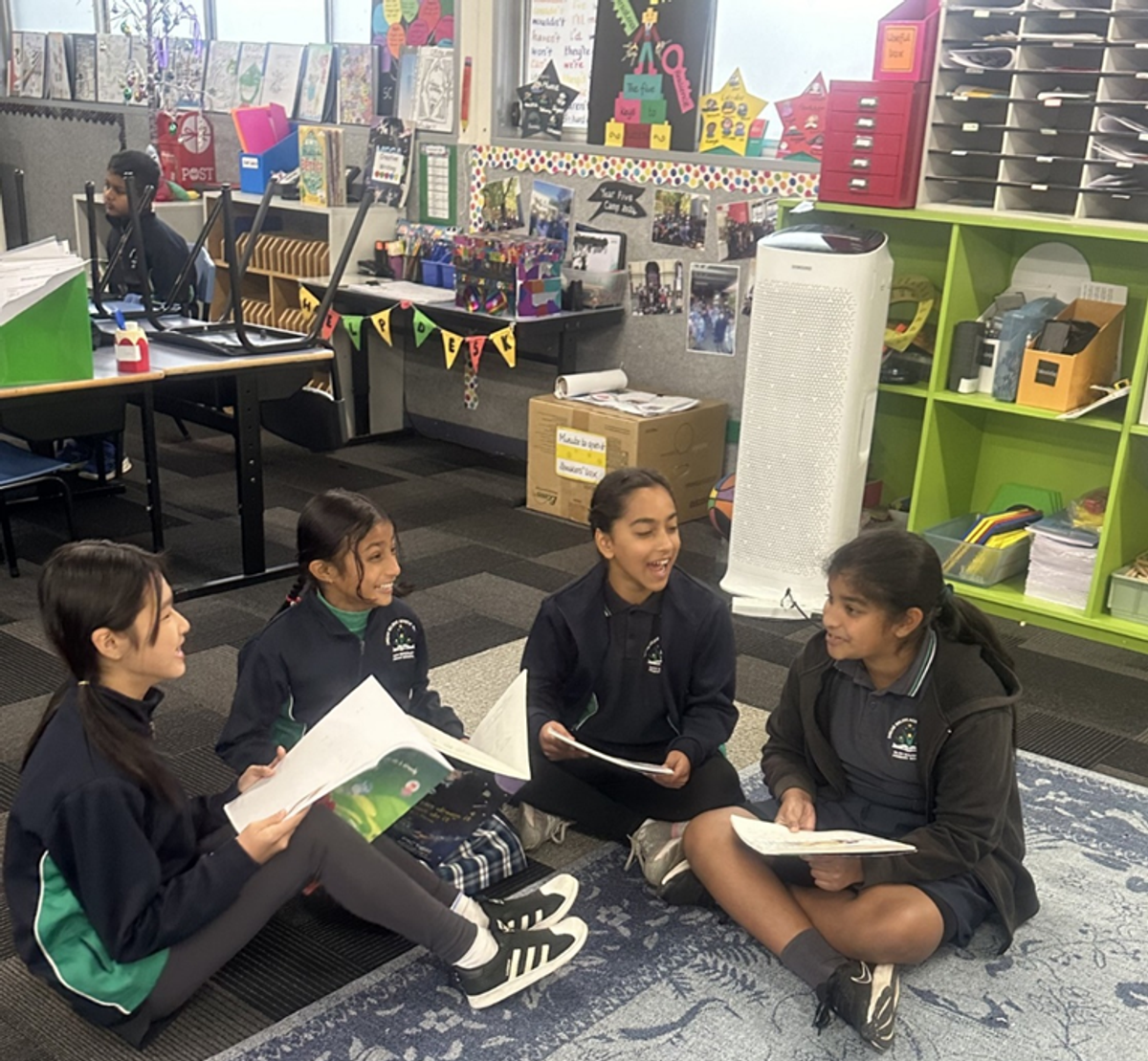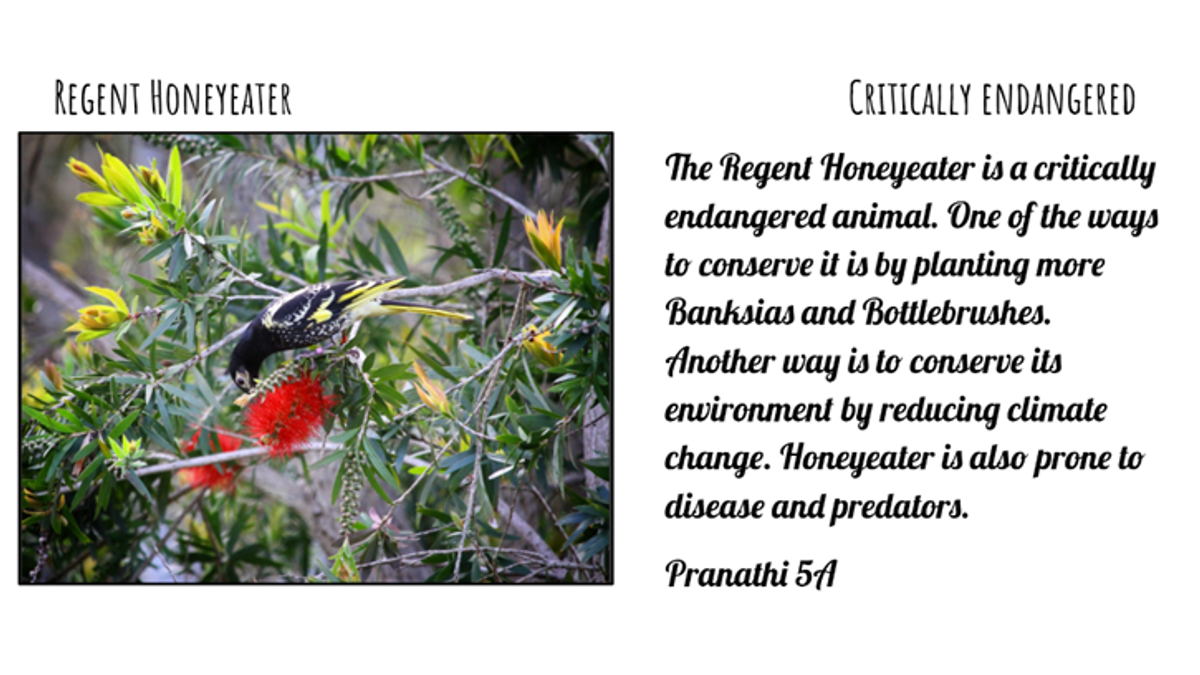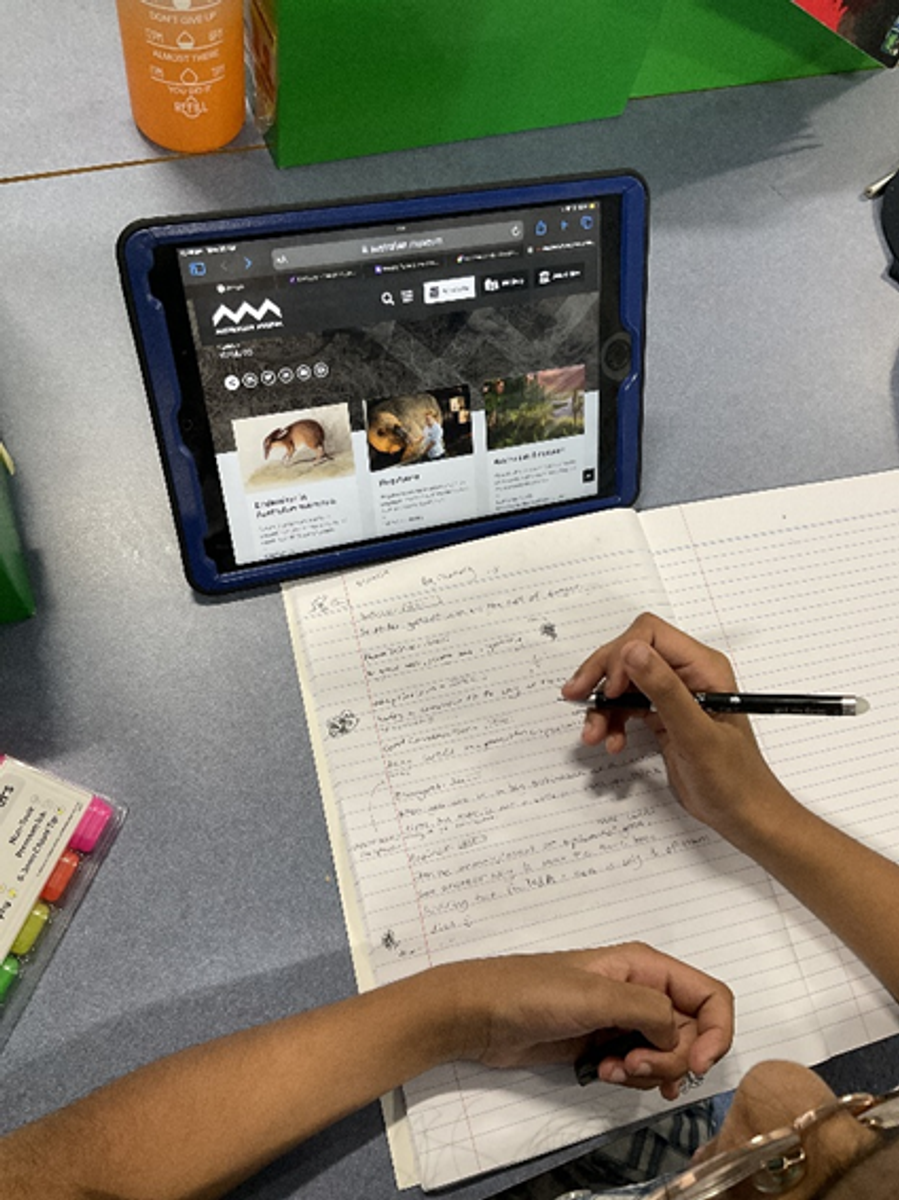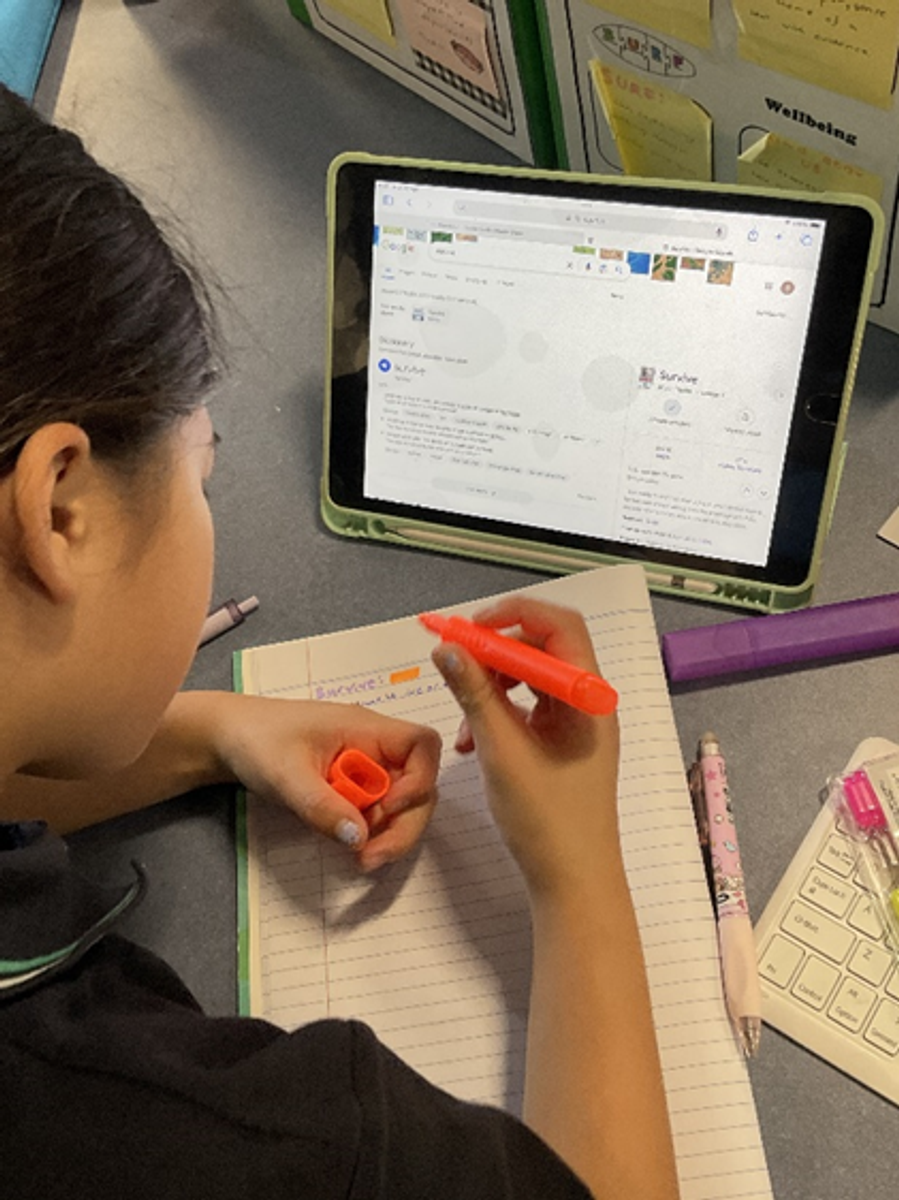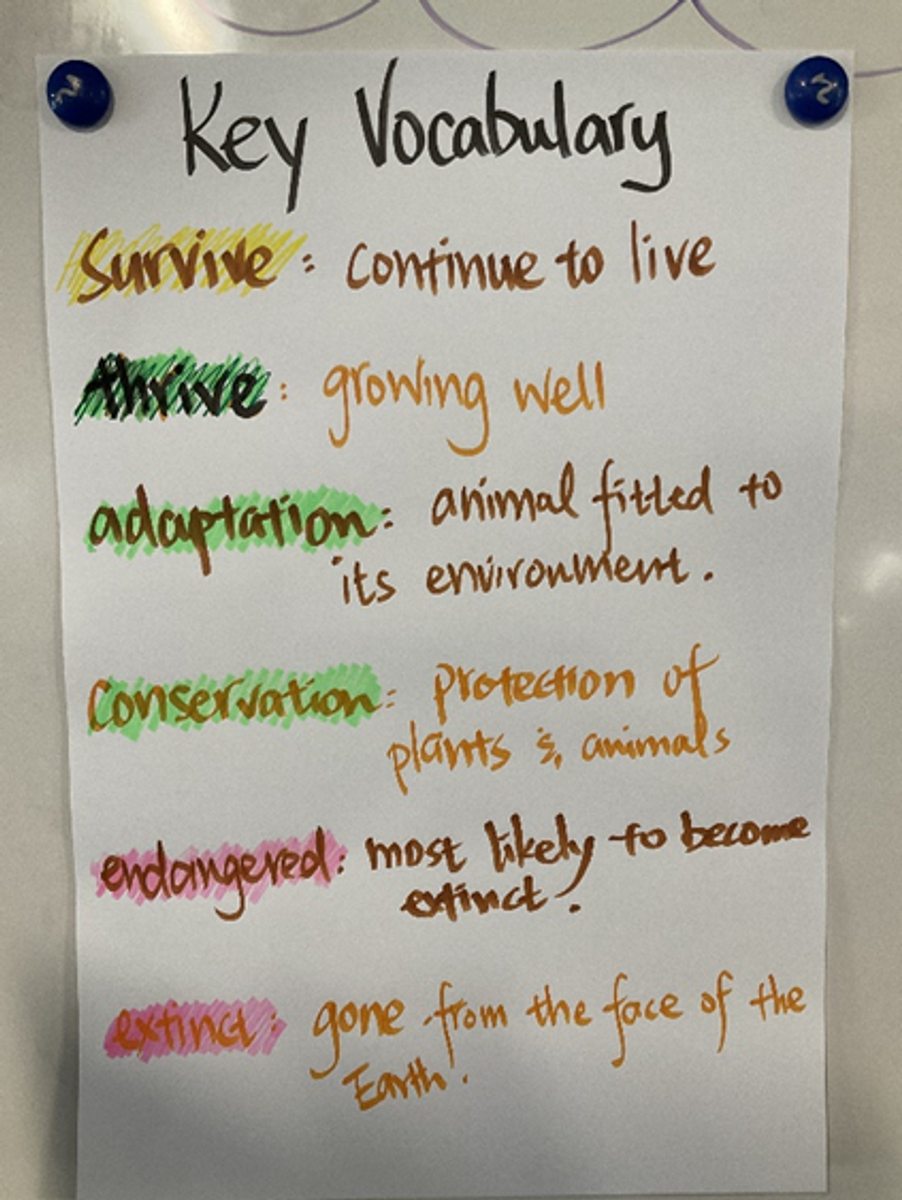Learning in Term Two
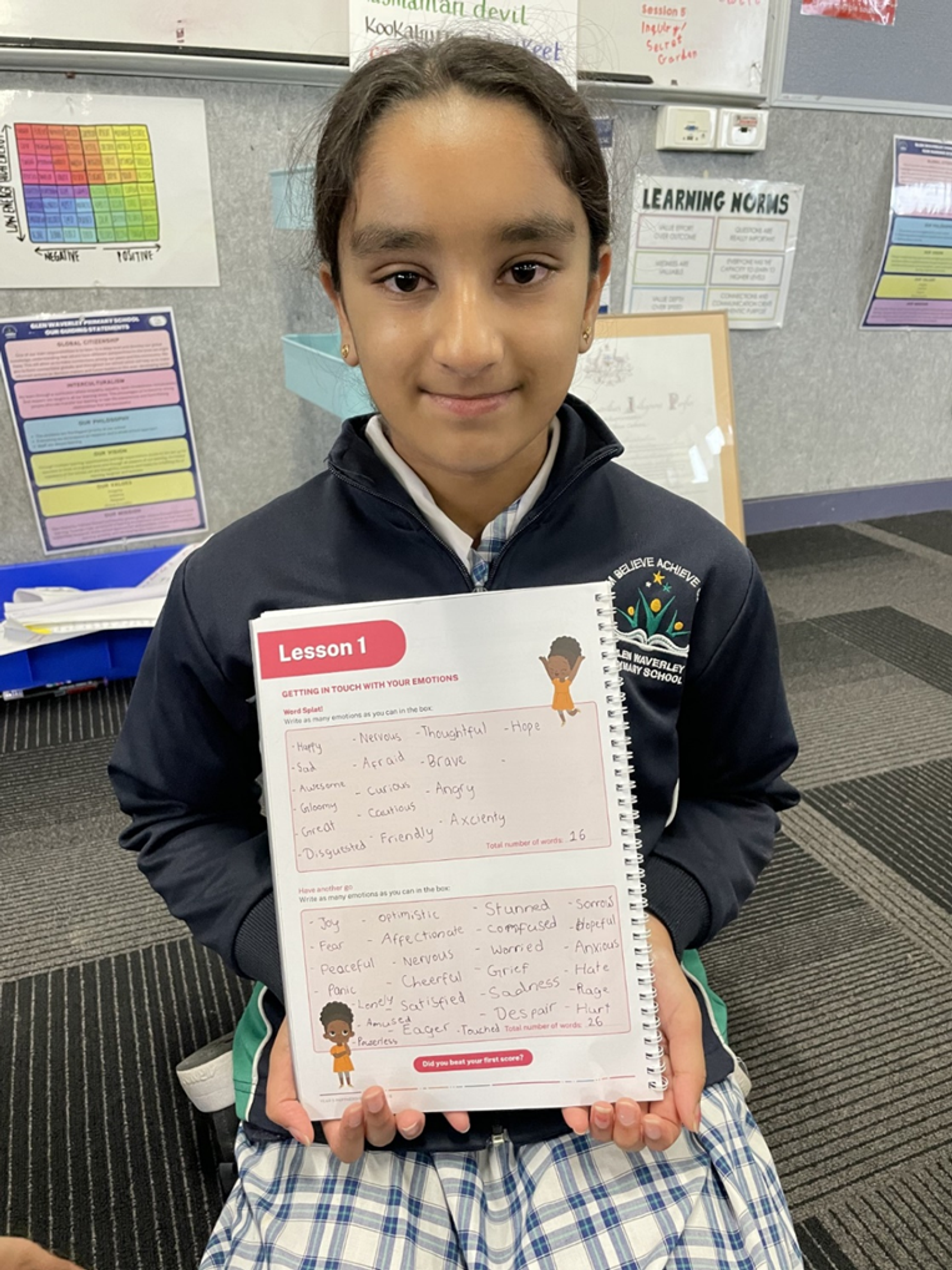
The Resilience Project
Wellbeing key vocabulary |
| Inclusion, Self-awareness, Self-regulation, Problem-solving, Acceptance, Adaptability, Reflection, Compassion, Stress management, Relationship building, Conflict resolution, Active listening, Patience |
During Term Two, students in Grade 5 will continue their journey with The Resilience Project, focusing on key insights gathered from student discussions and reflections. This term, we will delve into specific areas identified by students to enhance our understanding of resilience, positive relationships, and well-being.
Our focus will be on gratitude, empathy, mindfulness, and fostering positive friendships. We aim to deepen our practice of gratitude by reflecting on what we appreciate in our lives and how this contributes to our well-being. Through discussions and activities, we'll explore empathy to understand others' feelings and perspectives. Mindfulness techniques will also be introduced to help students stay present, manage stress, and cultivate a positive mindset.
Moreover, we will engage in conversations about friendship dynamics, inclusion, and conflict resolution. Understanding the importance of caring for our school environment and showing respect for nature and resources will also be emphasised.
To support your child’s learning at home, you could encourage them to:
- Engage in GEM (Gratitude, Empathy, Mindfulness) conversations with your child. Discuss what they appreciate, how they show empathy, and when they feel most mindful.
- Encourage discussions about friendship dynamics, inclusion, and resolving conflicts respectfully.
- Emphasise the value of understanding others' feelings and perspectives to build positive relationships.
The Behaviour Matrix
Behaviour key vocabulary |
| Expectations, guidelines, positive, inclusive, leadership, responsibility, honesty, empathy, understanding, diverse, support, conversations, praise, scenarios. |
The Level Five classes have collaboratively developed a Behaviour Matrix, outlining our expectations for behaviour both within the school and in the wider community. As senior students, we recognize the importance of modelling positive behaviour and fostering a respectful and inclusive environment. Our focus areas align with the school values of global empathy, respect, initiative, and integrity.
Respect: Respecting others' opinions and viewpoints during class discussions and group activities.
Treating school property with care and reporting any damage or misuse.
Initiative: Taking the initiative to resolve conflicts peacefully and respectfully.
Demonstrating leadership by helping classmates and contributing positively to group tasks.
Integrity: Taking responsibility for our actions and admitting mistakes when necessary.
Upholding honesty and integrity in all interactions, both in person and online.
Global Empathy: Showing empathy and understanding towards classmates from diverse backgrounds.
Including and supporting classmates who may feel left out or isolated.
To support your child’s learning at home, you could encourage them to:
- Encourage conversations about the importance of respect, empathy, initiative, and integrity in daily interactions.
- Praise your child for demonstrating positive behaviours such as taking initiative, showing empathy, and acting with integrity.
- Discuss real-life scenarios with your child and encourage them to think about how they would respond with respect, empathy, initiative, and integrity.
ENGLISH
English key vocabulary |
| Narrative, Engaging, Narrative device, Parts of speech, Functional grammar, Figurative language, Hooking start and end, Themes |
In Reading, students will investigate explicit strategies that authors use to engage their audience. We will be reading the classic The Secret Garden. This will allow our students to use multiple sentence types, rich ideas, purposefully chosen vocabulary and build their comprehension skills, for example, how to infer author’s message that is implied.
This term in Writing, we are focussing on narratives, through the lens of the author. We will be looking to transfer the skills learnt from reading and apply them to our writing. Students will also continue with sustained writing as they are provided with the opportunity to write about a topic of their choice and in a style, they desire, with the aim of achieving their learning goal.
In Spelling, students will continue to identify their personal words by finding words they have misspelt from their writing book and inquiring about them throughout the week. There will be a new focus each week, such as; the ‘aw/or/au/ore’ sound, when ‘Y’ can be a vowel, ‘ie’ and ‘ei’. Alongside this, they will use this opportunity to build new vocabulary and apply this throughout their learning.
To support your child’s learning at home, you could encourage them to:
- Ask questions through story reading – before, during and after reading the story.
- Read and view a range of narrative stories with varying storylines.
- Write for a dedicated amount of time (35 minutes) and include a twist, tension, moral or new engaging ending while writing.
- Write narratives that focus on showing you their learning goal.
MATHEMATICS
Maths |
Elapsed time, Schedule, Categories, Data, Converting, Rounding, Decimals, Estimating, Metric
|
This term in Mathematics, students will continue building their ability to track progress through the SURF strategies menu. They will explore aspects of Data and Statistics, specifically looking at the ways we can collect data and select the most suitable graphs and charts which best depicts the results. They will practise constructing clear and well-structured graphs both by hand and with digital resources such as Excel. Furthermore, the students will develop their understanding of analysing graphs and tables of data to draw conclusions from the information presented.
Later in the term, students will be exploring time, including 24-hour time and reading timetables, with a significant focus on real-life transfer of learning. In Number and Algebra, we will be exploring fractions decimals and percentages. Finally, we will investigate money problems using the four operations (addition, subtraction, multiplication and division) and use money as an opportunity for students to use rounding and estimating.
To support your child’s learning at home, you could encourage them to:
- Share what they have been learning and practicing in class.
- Explore different strategies to solve mathematical problems involving money.
- Ask your child to explain how they got their answer, what strategy did they use? Is their answer reasonable?
- Read and analyse weather patterns which appear on daily forecasts.
- Use 24-hour time when discussing events.
INQUIRY
Inquiry key vocabulary |
| Flora, Fauna, Biome, Impact, Environment Adaptations, Native, Survive, Thrive, Extinct, Endanger, Critically Endanger, Contribute, Decline, Conservation |
In Inquiry this term, students will be investigating the question, ‘How might we contribute to the thriving of flora and fauna?’ In preparation for the learning, Level Five teachers collected data and student voice to identify areas of curiosity and need for the cohort. Throughout the unit, students will explore the unique features of Australia’s native flora and fauna and the adaptations that help them to survive and thrive in their environment. They will inquiry into different native plants and animals to widen their perspectives in this topic. In addition, students will look at what initiatives are currently in place around Victoria and Australia to promote the survival of flora and fauna. They will take this newfound knowledge and take actions towards creating positive change. This will require students to use their critical and creative thinking to promote positive change.
To support your child’s learning at home, you could encourage them to:
- Share their new knowledge of Australian plants and animals
- Consider planting native Australian plants to support the local native habitats and food sources.
- When at your local park ask your child to describe the plants and wildlife they see. Do they think it’s native or introduced species? Use apps/books to try identifying them.
- Read ‘The Story of Rosy Dock’ by Jeannie Baker with your child (again) and share your thoughts with each other.


